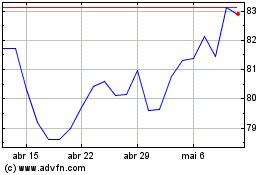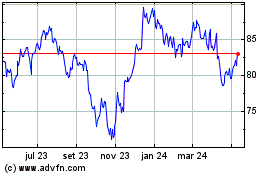2013 has been good so far for both the equity markets and the
ETF industry. The broad benchmarks are hovering near their all-time
highs thanks to improving global sentiment, and growing investor
confidence.
Though most of the sectors are performing well, the real estate
sector is gaining immense popularity thanks to a gradual recovery
in the U.S. economy (read: Two Sector ETFs Posting Incredible
Gains). Stronger commercial as well as residential real estate
fundamentals, upbeat housing data and higher home prices are making
securities in this segment attractive at present.
The low interest rate environment and moderate levels of
economic growth are stimulating real estate demand. Further, the
industry has a good track record of dividend payments, which are
arguably the biggest enticement for REIT investors. (U.S. law
requires REITs to distribute 90% of their annual taxable income in
the form of dividends to shareholders.)
This corner of the market has even outperformed the traditional
safe investments such as bonds and gold. This suggests that real
estate has become a safe haven investment for investors once
more.
This interesting trend could be due to the higher yield nature
of securities in this slice of the market as payouts often exceed
what investors see in similar broad market ETFs (read: Two
Unconventional Sources of ETF Yield).
As a result, for investors looking to make a play on the space,
we have highlighted three real estate ETFs that have garnered huge
investor interest, making them popular this year. These ETFs have
added at least 5% so far in the year, and any of which could be
great additions to a portfolio starved of real estate (see more
ETFs in the Zacks ETF Center).
While the choices look similar, there are some key differences
between the REIT ETFs, which we have highlighted below:
Vanguard REIT ETF (VNQ)
Launched in September 2004, this is the largest real estate ETF
in the space and tracks the MSCI US REIT Index. The fund gathered
over $1.4 billion this year, leading to an asset base of over
$17.9 billion.
With holdings of 120 securities, the product puts 43.30% of the
assets in top 10 companies, suggesting a moderate concentration
across individual firms.
Simon Property (SPG) takes the top spot with the largest (10.7%)
share while Public Storage (PSA) and HCP Inc. (HCP) occupy the
other two spots with 4.7% and 4.6% of the assets, respectively.
Other firms do not hold more than 4.3% of VNQ, suggesting solid
diversification.
Looking at real estate market exposure, the fund is well spread
out between specialized REITs (30.10%), retail REITs (27.10%),
residential REITs (16.50%), office REITs (13.90%), diversified
REITs (7.30%) and industrial REITs (5.10%).
Large caps accounts for about 47% of the assets while mid and
small cap takes the remaining portion in the basket. The fund is
liquid as it trades in higher volumes of 2.6 million shares per day
on average, signifying that an extra cost of investment is not
involved, and that bid/ask spreads are minimal.
The product is one of the low cost choices in the space,
charging only 10 bps in annual fees from investors. The ETF gained
6.46% in the year-to-date period and yields a solid 3.33% in annual
dividends (read: Homebuilder ETFs: Can the Rally Continue?).
iShares Dow Jones U.S. Real Estate Index Fund
(IYR)
Launched in June 2000, the fund seeks to replicate the Dow Jones
U.S. Real Estate Index, before fees and expenses, and holds 89
securities in the basket.
The product pulled in about $231.4 million so far this year,
accumulating over $5.1 billion in its asset base while charging 46
bps in fees per year. It is tilted towards the large cap firms with
roughly 53% share with another 33% in mid caps.
IYR pays lesser attention to its top 10 holdings (less than 40%
of assets) and is spread well across a variety of securities. Like
VNQ, SPG occupies the top position in the basket with 8.59% share
while American Tower (AMT) and HCP rounded off to the top
three.
Among sector holdings, Specialty REITs, Retail REITs and
Industrial REITs take the major chunks of the asset base, with a
collective share of 67.74%.
The ETF has added about 6.80% in the year-to-date period and has
an impressive yield of 3.46% per annum. IYR is highly traded
relative to VNQ. The fund trades with average volume of 8.8 million
shares per day.
SPDR Dow Jones REIT ETF (RWR)
This was another successful product this year, attracting $102
million in new capital. This ETF tracks the Dow Jones U.S. Select
REIT Index which follows companies that operate commercial real
estate properties across the country (read: The Introductory Guide
to Real Estate ETF Investing).
The fund has amassed over $2.1 billion in AUM and charges
investors 25 basis points a year in fees for its services. Launched
in April 2001, the fund holds 85 securities in total with 47.98% of
the assets going to top 10 holdings.
Like VNQ, SPG, PSA and HCP occupy the top three positions in the
fund’s portfolio. Within the sector, regional malls take the top
spot in the basket with 18% share while apartments, healthcare and
office round off the top four.
In terms of yield, the product pays out about 2.89% in annual
dividend yields while trading volumes are quite good. With average
volume of over 240,000 shares, the product has wider bid/ask
spreads relative to VNQ and IYR, although this is still a high
volume level. The ETF is up 5.06% year-to-date.
Want the latest recommendations from Zacks Investment Research?
Today, you can download 7 Best Stocks for the Next 30
Days. Click to get this free report >>
ISHARS-DJ REAL (IYR): ETF Research Reports
SPDR-DJ W REIT (RWR): ETF Research Reports
SIMON PROPERTY (SPG): Free Stock Analysis Report
VIPERS-REIT (VNQ): ETF Research Reports
To read this article on Zacks.com click here.
Zacks Investment Research
Want the latest recommendations from Zacks Investment Research?
Today, you can download 7 Best Stocks for the Next 30 Days. Click
to get this free report
Vanguard Real Estate ETF (AMEX:VNQ)
Gráfico Histórico do Ativo
De Dez 2024 até Jan 2025

Vanguard Real Estate ETF (AMEX:VNQ)
Gráfico Histórico do Ativo
De Jan 2024 até Jan 2025
